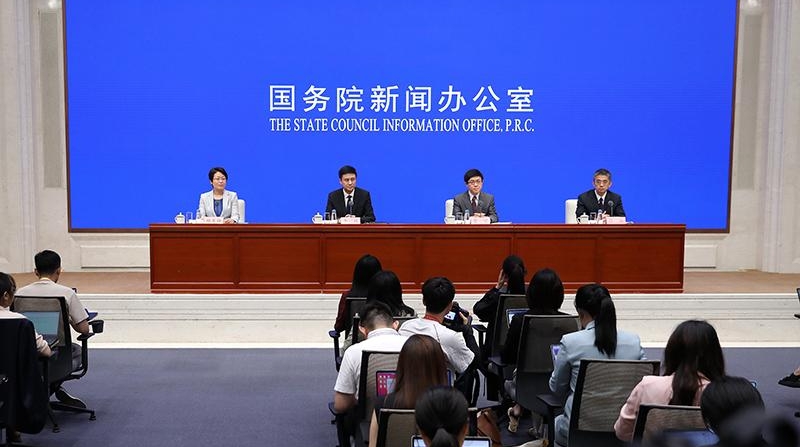CNR:
In recent years, foreign exchange management authorities have introduced policies like the integrated domestic and foreign currency capital pool. We recognize that integrated management of domestic and foreign currencies is becoming a key approach to managing cross-border capital flows. Could you please share considerations for promoting integrated domestic and foreign currency management? Thank you.
Li Bin:
Thank you for your interest in and attention to foreign exchange administration. I will answer your question. In recent years, cross-border trade and investment activities have become more dynamic, and the cross-border use of the RMB has gradually increased. This has increased the requirements for the coordinated management of domestic and foreign currency transactions. For enterprises and other market entities, cross-border payments and receipts in both domestic and foreign currencies serve as tools for pricing and settlement, with the only difference being the choice of currency. They are essentially both means of international payment. Clarifying the requirement to apply “uniform management standards to businesses of the same type” has allowed banks and enterprises to better understand and implement policies, and also enhanced the efficiency and convenience of cross-border capital operation and management. To this end, SAFE has worked closely with the People’s Bank of China and other departments to actively explore the integrated management of domestic and foreign currencies and the streamlining of business processes in both policy formulation and implementation.
First, we have incorporated the concept of integrated domestic and foreign currency management into policy formulation. Let me give you a few examples. For multinational corporations, we have gradually developed a unified policy framework for domestic and foreign currency cash pools, enabling the integration of both types of funds to better meet their cross-border capital management needs. For domestic enterprises listed overseas, the relevant fund management policies allow them to freely choose whether to repatriate proceeds from fundraising, equity reduction and share transfers in RMB or a foreign currency, thereby supporting efficient financing and flexible use of funds. Another example is the fund management policies for Qualified Foreign Institutional Investor (QFII) and RMB Qualified Foreign Institutional Investor (RQFII), direct access to the interbank bond market and panda bond issuance have achieved consistency and uniformity in the management rules for both domestic and foreign currencies.
Second, we have promoted the integrated management of domestic and foreign currencies in cross-border business processes. Through business integration, process reengineering and data sharing, we have achieved a unified set of rules and one-stop processing. A unified set of rules means establishing consistent standards for cross-border transactions in both domestic and foreign currencies, aligning data standards and cross-border regulations, and thereby reducing the complexity of tasks such as opening accounts and settling payments. One-stop processing means that regardless of whether domestic or foreign currency is used, the registration of direct investment, securities investment and debt-related transactions can all be handled by either SAFE or banks, significantly improving the efficiency of business processing.
Next, we will work with the People's Bank of China to further advance the integrated management of domestic and foreign currencies on a broader scale, promote greater facilitation of cross-border trade and investment and financing, and help foster a more favorable business environment for foreign-related enterprises. Thank you.


 Share:
Share: 




 京公网安备 11010802027341号
京公网安备 11010802027341号